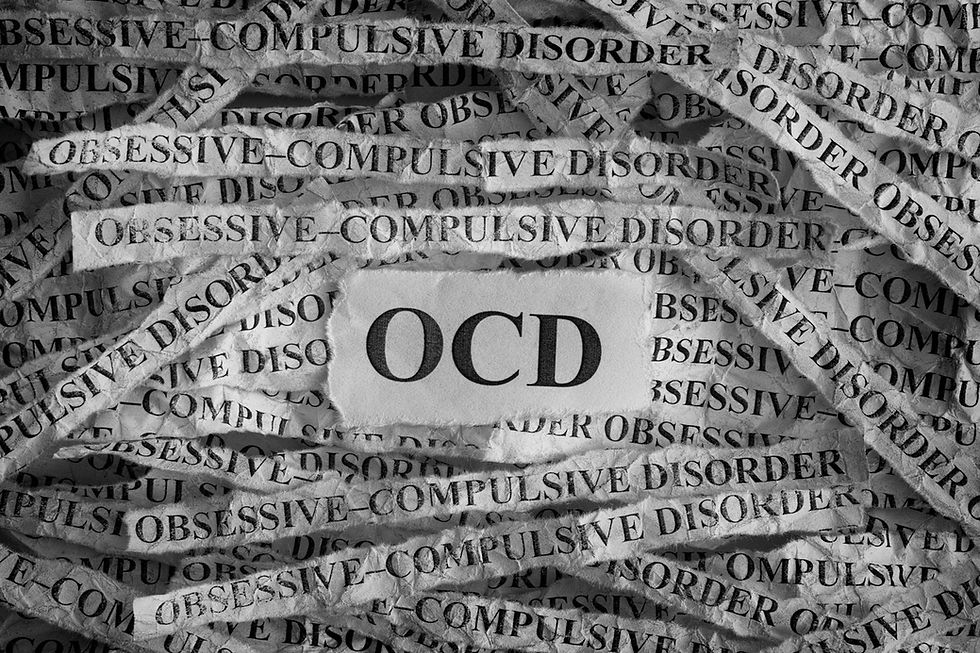Scrolling Ourselves Sick: How Social Media Fuels Teen Mental Health Struggles
- Audrey L.

- May 26, 2025
- 3 min read

It’s no secret that teenagers today are struggling with their mental health. Rates of anxiety and depression have surged over the past decade, and emergency rooms now see more teens for mental health crises than ever before. Ask psychologists why, and a single culprit is named again and again: social media.
We don’t like to admit it, but our phones are not neutral tools. They’re dopamine dispensers. And for teenagers—already navigating the complexities of hormones, identity, friendships, and academic pressure—unlimited time scrolling social media can become an accelerant for insecurity and distress.
The Anxiety of Being “Always On”
Imagine trying to grow up while feeling like the whole world is watching. That’s the reality of Instagram stories, TikTok videos, and Snapchat streaks. A missed post, a photo with too few likes, a text left on read, all of it has the potential to become fuel for overthinking and anxiety.
Psychologists call this “ambient awareness,” the sense that you’re always being observed and judged. For teens, it can be exhausting. That constant pressure to perform—to be funny, pretty, smart, popular, or aesthetic—can feed anxiety like oxygen feeds fire. Even logging off doesn’t stop the mind from replaying: Did I look ugly? Was my joke lame?
The Comparison Trap
If anxiety thrives on pressure, depression thrives on comparison. And social media is the perfect breeding ground. Scroll through your feed and you’ll see classmates on vacation, influencers with flawless skin and figures, and peers with better grades, nicer clothes, and seemingly perfect lives.
It doesn’t matter that most of it is curated or filtered. Your brain still registers it as real. Study after study shows that heavy social media use correlates with lower self-esteem, body dissatisfaction, and increased depressive symptoms. It’s like standing in front of a funhouse mirror that shrinks your own life down to nothing.
Why We Can’t Stop Scrolling
Here’s the cruel irony: the very platforms that make us feel worse are the ones we can’t seem to quit. The endless scrolling, the “like” notifications, the personalized algorithms, they’re all designed to hijack the brain’s reward system. A funny video, then a sad one, then a shocking one—the unpredictability keeps us glued, waiting for the next hit.
It’s not just a distraction. It’s compulsion. And for many teens, that compulsion means less sleep, less in-person interaction, and less time to recover from the emotional punches social media lands. Poor sleep alone is a massive predictor of depression and anxiety. Add constant comparison, cyberbullying, or the fear of missing out, and the equation becomes highly damaging to mental health.
Learn to Protect Your Mental Health
We know that tech companies have engineered social apps to be addictive. But since they won’t redesign their business models anytime soon, teens need to take practical steps to protect their mental health.
Set boundaries that stick. Don’t just promise yourself you’ll scroll less, use app timers or downtime settings to enforce it.
Curate consciously. If following someone makes you feel worse, unfollow. Fill your feed with accounts that inspire or support you.
Prioritize real rest. Keep phones out of your bedroom at night. Your brain can’t heal when it’s sleep-deprived.
Talk openly. Admitting that social media makes you anxious or depressed isn’t weakness, it’s honesty. Confide in a trusted adult or friend and seek support to help limit social media’s impact on your mental help.
The Bigger Picture
Here’s the hard truth: social media is not going away. For teens, it’s woven into friendship, identity, and culture. But acknowledging its harms is the first step toward balance. Pretending it’s harmless—or worse, blaming teens for “using it wrong”—ignores the growing body of evidence that the rise in “doom scrolling” is fueling a mental health crisis.\
It’s time to treat our attention and mental health like the scarce resources they are. Anxiety and depression don’t flourish in a vacuum. They flourish when comparison, performance, and compulsion are packaged into a glowing screen we can’t seem to put down.
If you’re a teenager reading this, know this: you are not weak for feeling drained by social media. You are reacting to a system designed to make you feel that way. The challenge isn’t just to resist scrolling, it’s to reclaim your peace, your rest, and your self-worth from platforms that profit off your pain.
Because your mental health isn’t a trend. And no app should decide how you feel about yourself.



